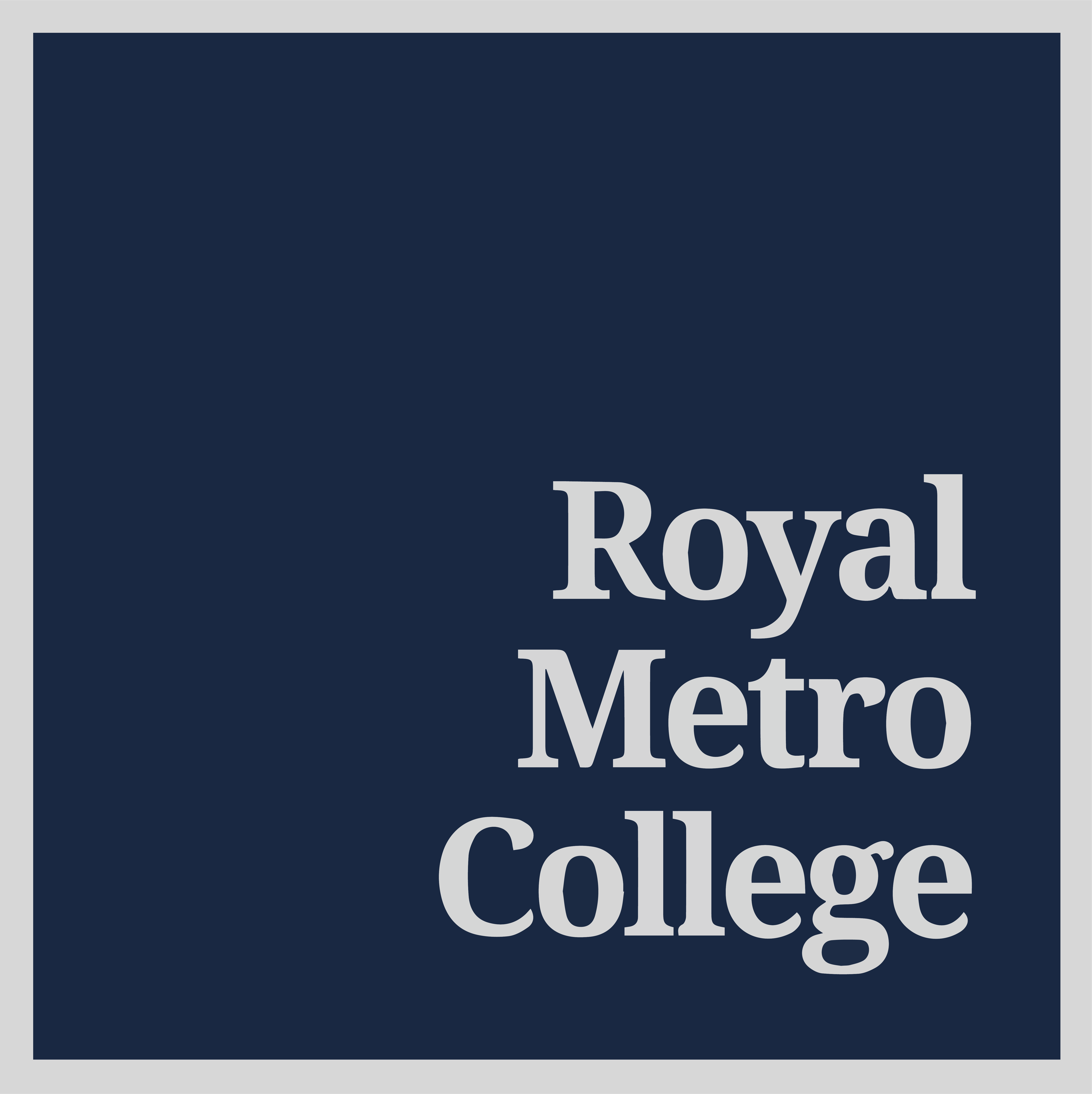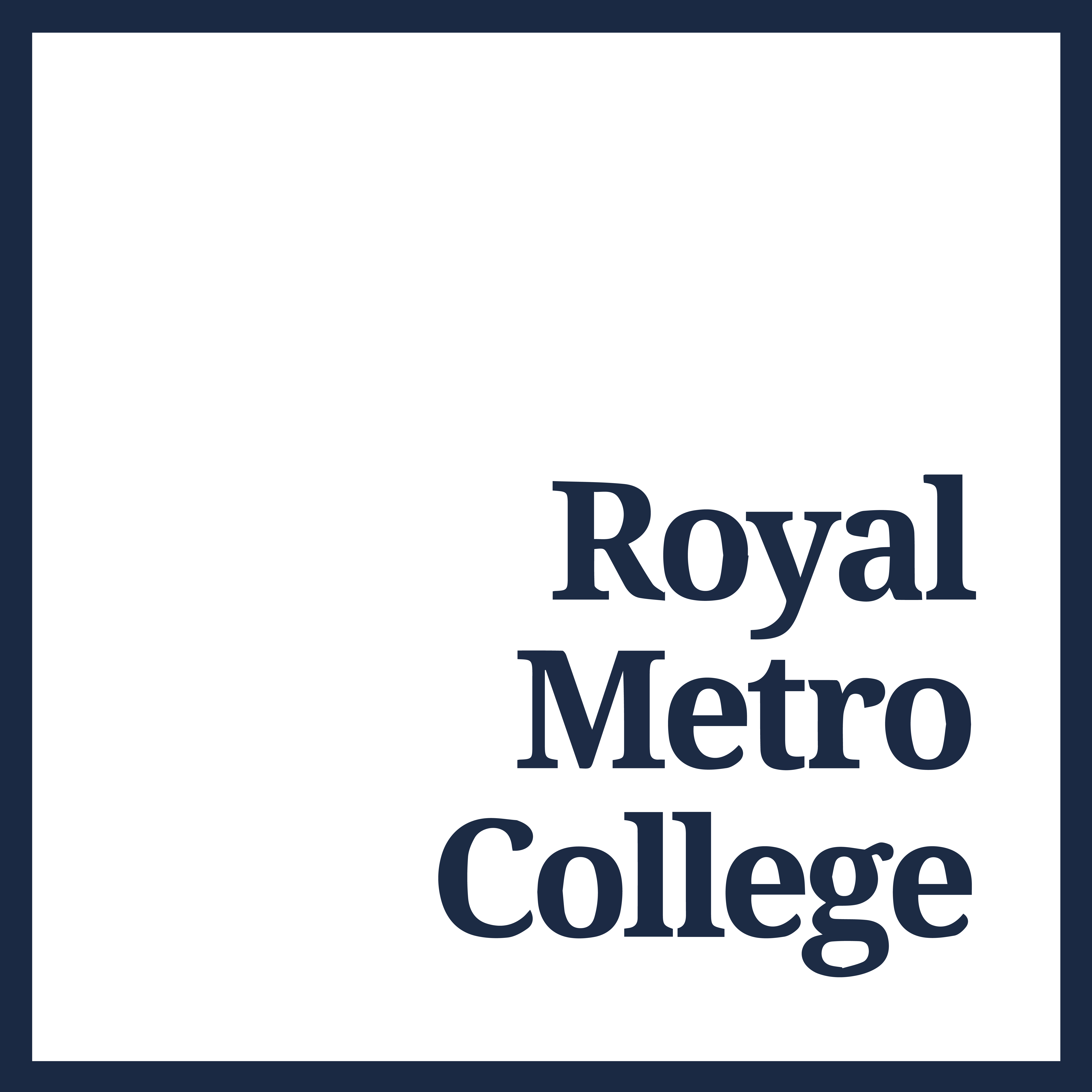Critical Incident and Crisis Management Policy
Purpose
Royal Metro College (RMC) is committed to providing a safe and supportive environment for students, staff, and visitors.
This policy outlines the procedures for preventing, responding to, and managing critical incidents or crisis situations that may affect the health, safety, or well-being of any member of the RMC community.
Scope
This policy applies to all RMC locations, programs, employees, contractors, and students, including international students.
- Definition of a Critical Incident or Crisis
A critical incident or crisis refers to any sudden or unforeseen event that causes, or has the potential to cause, serious harm to students, staff, or the College’s operations.
Examples include but are not limited to:
- Serious injury, illness, or death of a student or staff member
- Missing student or serious mental-health emergency
- Fire, natural disaster, or hazardous material incident
- Violence, assault, threat, or other criminal activity
- Pandemic, infectious disease outbreak, or major public health emergency
- Significant property damage or power/system failure
- Any situation that attracts media attention or could affect the reputation of the College
- Designated Crisis Management Personnel
The Administrative Office is responsible for coordinating the College’s response to critical incidents.
Designated personnel include:
- Senior Education Administrator (SEA): Crisis Manager and institutional lead for response and reporting
- Administrative Office / Campus Manager: On-site coordination, communication, and documentation
- President or Director: Overall oversight and liaison with regulatory and emergency authorities
Contact Email: studentservices@royalmetro.ca
- Immediate Response Procedures
Step 1 – Ensure Safety
- Call 911 for any life-threatening emergency.
- Evacuate or secure the area as directed by emergency services.
- Provide first aid if trained and it is safe to do so.
Step 2 – Notify Administration
- Report the incident immediately to the Administrative Office.
- Record essential details: date, time, persons involved, witnesses, and nature of the incident.
Step 3 – Initial Assessment
- The delegate will assess the level of risk and determine if external agencies (police, fire, ambulance, WorkSafeBC, PTIRU, or health authorities) must be notified.
Step 4 – Communication
- Internal communication will be coordinated by the Administrative Office.
- Only the authorized spokesperson may communicate externally or with media.
- Follow-Up and Support
- Ensure affected students or staff receive appropriate medical, psychological, and counselling support.
- Contact next of kin where appropriate.
- Resume normal operations as soon as safely possible.
- Conduct a post-incident review to evaluate the response and implement improvements.
- Reporting and Documentation
- All incidents must be documented using an Incident Report Form within 24 hours.
- Records are to be securely stored for a minimum of five (5) years.
- The SEA will report any serious incidents to relevant authorities (e.g., PTIRU, WorkSafeBC, EQA Unit) as required by regulation.
- Training and Prevention
- Staff will receive annual orientation and refresher training on emergency procedures, evacuation routes, and crisis communication.
- The College will maintain first-aid kits, emergency contact lists, and health-and-safety notices at all instructional locations.
- Fire drills and safety inspections will be conducted regularly in compliance with local bylaws.
- Policy Review and Accessibility
This policy will be reviewed annually to ensure alignment with the EQA Code of Practice, PTIRU requirements, and best practices for campus safety.
It is publicly available on the RMC website and included in the student and staff orientation materials.

